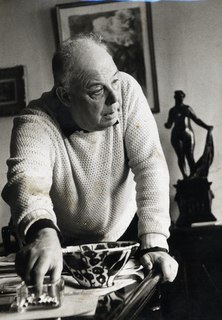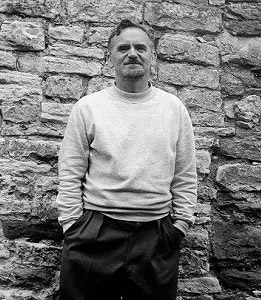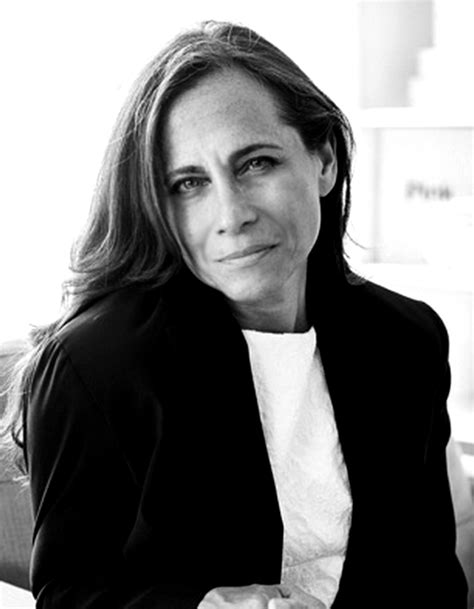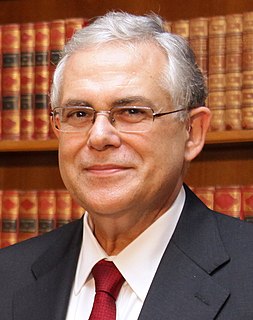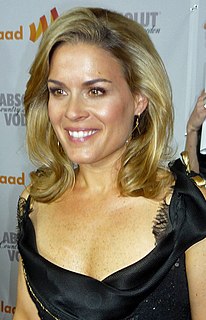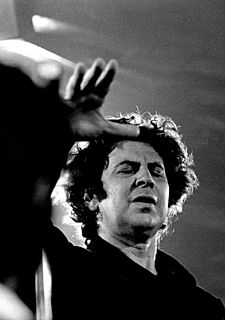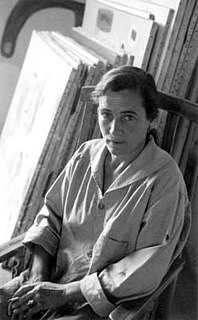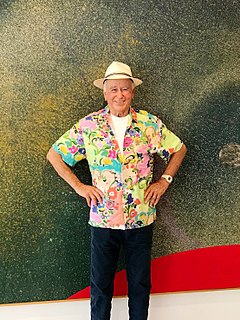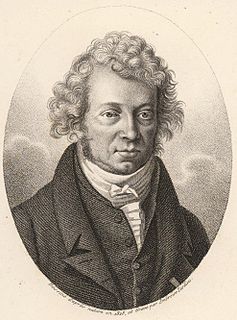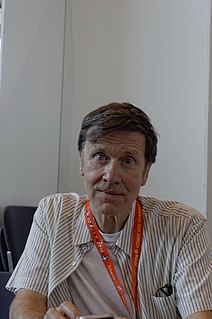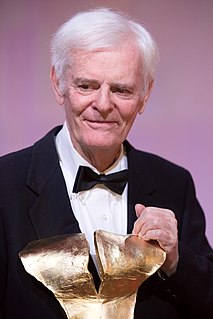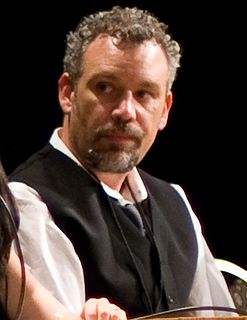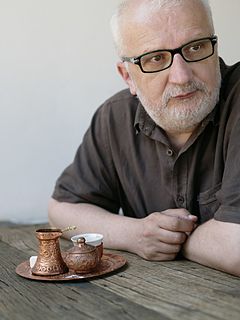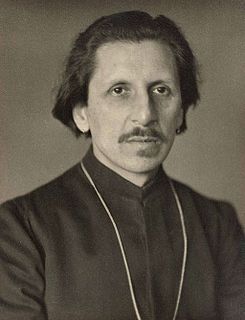Top 1200 Greek Art Quotes & Sayings - Page 2
Explore popular Greek Art quotes.
Last updated on December 19, 2024.
What makes art Christian art? Is it simply Christian artists painting biblical subjects like Jeremiah? Or, by attaching a halo, does that suddenly make something Christian art? Must the artist’s subject be religious to be Christian? I don’t think so. There is a certain sense in which art is its own justification. If art is good art, if it is true art, if it is beautiful art, then it is bearing witness to the Author of the good, the true, and the beautiful
To the question, ‘Is the cinema an art?’ my answer is, ‘what does it matter?’... You can make films or you can cultivate a garden. Both have as much claim to being called an art as a poem by Verlaine or a painting by Delacroix… Art is ‘making.’ The art of poetry is the art of making poetry. The art of love is the art of making love... My father never talked to me about art. He could not bear the word.
Versatility is one of the few human traits which are universally intolerable. You may be good at Greek and good at painting and be popular. You may be good at Greek and good at sport, and be wildly popular. But try all three and you’re a mountebank. Nothing arouses suspicion quicker than genuine, all-round proficiency.
I think Eros should be dirty. In Greek legend, as I'm sure you are aware, he fell in love with the minor deity Psyche. It was the Greek way of saying that, in spite of what it may believe, Love pursues the Soul, not the body; the Erotic desires the Psychic. If Love was clean and wholesome he wouldn't lust after Psyche.
Fine art, that exists for itself alone, is art in a final state of impotence. If nobody, including the artist, acknowledges art as a means of knowing the world, then art is relegated to a kind of rumpus room of the mind and the irresponsibility of the artist and the irrelevance of art to actual living becomes part and parcel of the practice of art.
I lived in the Caribbean when I was a teenager, so I learned about Salsa and Cha-Cha and all these Latin Afro-Cuban music like Gillespie and Duke Ellington, also bridged with Jazz. But my mother is Greek, and so I've also listened a lot to Greek music. And through the years to Balcanic music to Arabic music because my father loved music from Egypt.
Art is frightening. Art isn't pretty. Art isn't painting. Art isn't something you hang on the wall. Art is what we do when we're truly alive. An artist is someone who uses bravery, insight, creativity, and boldness to challenge the status quo. And an artist takes it (all of it, the work, the process, the feedback from those we seek to connect with) personally.
We live in an era when established values are no longer valid, when prodigious discoveries are being made every year, when catastrophes of unbelievable proportions occur weekly. In ancient Greek the word “chaos” means “gaping void” or “yawning emptiness.” The most effective response to the chaos in our lives is the creation of new forms of literature, music, poetry, art and cinema.
George was the easy part. As for Michael, I had always liked the name, and my father's brother is named Michael. I thought it was a good idea because there are a lot of Greeks in England with the second name of Michael; as a child I had a Greek friend whose second name was Michael. It was like getting the name that I wanted without having to get rid of the Greek element.
Has it led you to the conclusion that photography is an art ? Or it is simply a means of recording ? "I'm glad you asked that. I've been wanting to say this for years. Is cooking an art ? Is talking an art ? Is even painting an art ? It is artfulness that makes art, not the medium itself. Of course photography is an art - when it is in the hands of artists."
Greek is the embodiment of the fluent speech that runs or soars, the speech of a people which could not help giving winged feet toits god of art. Latin is the embodiment of the weighty and concentrated speech which is hammered and pressed and polished into the shape of its perfection, as the ethically minded Romans believed that the soul also should be wrought.
To later Romans Ennius was the personification of the spirit of early Rome; by them he was called "The Father of Roman Poetry." We must remember how truly Greek he was in his point of view. He set the example for later Latin poetry by writing the first epic of Rome in Greek hexameter verses instead of in the old Saturnian verse. He made popular the doctrines of Euhemerus, and he was in general a champion of free thought and rationalism.
Contemporary art is based on that an artist is supposed to go into art history in the same way as an art historian. When the artist produces something he or she relates to it with the eye of an art historian/critic. I have the feeling that when I am working it is more like working with soap opera or glamour. It is emotional and not art criticism or history of art.
I did have the resource of having taught Greek mythology and the history of Western civilization, and you can go back into the plays of Aeschylus and follow what happens when people seek revenge, and there are people plucking their eyes out. And Greek mythology is filled with all kinds of monsters and whatnot.
Hellenic science is a victory of rationalism, which appears greater, not smaller, when one is made to realize that it had been won in spite of the irrational beliefs of the Greek people; all in all, it was a triumph of reason in the face of unreason. Some knowledge of Greek superstitions is needed not only for a proper appreciation of that triumph but also for the justification of occasional failures, such as the many Platonic aberrations.
All the Greek mythic heroes had gone east, but they were myths. Achilles was a myth. Perseus, Theseus, Hercules... they probably existed in some form. But they all went east. That's where a Greek went to make his bones so to speak. And Alexander the Great was the first man who actually went east not to plunder, not to loot and come back to Greece - which is where the Macedonians wanted to go back with the money. He stayed. And he became half-Eastern.
The Jews had a love-hate relationship with the Greek culture. They craved its civilization but resented its dominance. Josephus says they regarded Greeks as feckless, promiscuous, modernizing lightweights, yet many Jerusalemites were already living the fashionable lifestyle using Greek and Jewish names to show they could be both. Jewish conservatives disagreed; for them, the Greeks were simply idolaters.
The growth of art seems to be in cycles, and often its vigorous lifetime is restricted to a century or two. The periods of distinctive drama, Greek, English, Spanish, fall within such a limit; the schools of painting and sculpture likewise; and, in poetry, the Victorian age or the school of Pope will serve as examples.
What is the foundation of that interest all men feel in Greek history, letters, art, and poetry, in all its periods, from the Heroic or Homeric age down to the domestic life of the Athenians and Spartans, four or five centuries later? What but this, that every man passes personally through a Grecian period.
Warhol and other Pop artists had brought the art religion of art for art's sake to an end. If art was only business, then rock expressed that transcendental, religious yearning for communal, nonmarket esthetic feeling that official art denied. For a time during the seventies, rock culture became the religion of the avant-garde art world.

